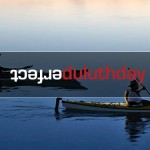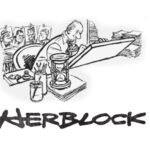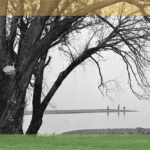A Second Late Night at the End of the Year
So a drip coffee is free at Barnes & Noble until the Dec. 23 after 8 p.m., so I am back. The people watching is better tonight, maybe because it’s Friday.
It seems silly to have spent so much time talking about books without thinking about books and writers in the last year, for me.
I’ve redesigned my Spring 2019 class to be about local writers and the ways that they build “writing lives. I’m teaching Linda Grover, Julie Gard, Michael Fedo, Roy C. Booth [of Hibbing, now Bemidji, but close enough, and I wanted a professional playwright] and Lucie Amundsen. Each of them has a special place in my last year’s memory:
- I saw Gard read Scrap; on Louise Nevelson at the Zenith City bookstore. Julie was one of the poets in Kathleen Roberts’ collection in honor of Kathy McTavish, mentioned earlier.
- I heard Linda read from Onigamiising: Seasons of an Ojibwe Year at UMD.
- I heard Michael Fedo read from Don’t Quit Your Day Job: The Adventures of a Midlist Author at an event sponsored by Lake Superior Writers. The Minnesota Historical Society has funded a grant for me and Jamie White-Farnham to interview Fedo and others for an oral history project.
- Roy, I see every year reading at MarsCon and at ConVergence, two conventions in the Twin Cities with Duluth attendees aplenty.
I see Lucie every once in a while at Beaners, on open mic nights, where I also hear folks like Felicia Schneiderhan, Avesa Rockwell, Zomi Bloom and others read. Some practice reading at Beaners before Writers Read, an annual event in Ashland.
Split Rock Review continued, releasing new issues and for the first time releasing an anthology in print book form. Waters Deep: A Great Lakes Poetry Anthology includes my friend Milton Bates, whose chapbooks Always on Fire and As They Were sit alongside The Bark River Chronicles on my shelf.
Ed Newman has shifted gears in his writing, working hard at both his blogs [here and here] and on Medium. Ed is the most conscientious and prolific writer I know.
As for me, I wrote a lot this year, too, mostly academic writing, the odd opinion piece, here and there. I read some amazing things, though. I’m ending the year reading this suite of books:
- Neighbors: The Destruction of the Jewish Community in Jedwabne, Poland by Jan T. Gross
- The Neighbors Respond: The Controversy over the Jedwabne Massacre in Poland by Antony Polonsky (Editor), Joanna B. Michlic (Editor)
- The Crime and the Silence: Confronting the Massacre of Jews in Wartime Jedwabne by Anna Bikont (Author), Alissa Valles (Translator)
I’m reading these because I was forced, by a somewhat erratic administrative decision, to move offices. Several hundred books moved from one room to another room, roughly 2/3rds its size. So I am finding books that were of interest to me ten years ago that have a new interest now.
One interest in the story of Jedwabne is contemporary. As I watch our increasingly divisive and violent political climate, I think about the events in Jedwabne and wonder whether we have come as far as we might have hoped.
There are extended passages in Gross and in Bikont detailing the ways that the Polish self-conception as “victims” of German occupiers and as “victims” of Russian occupiers prevents them from recognizing their role as perpetrators of the Holocaust. Even when a town of Poles sets a barn afire with 1,600 Jews inside, they do so, they say, as the victim of four German S.S. stationed at Jedwabne. Today: I hear a great deal of victimhood, on all sides of the political spectrum, and I wonder whether an identity as a victim makes violence easier in the U.S. today, too. I hope not.
And one interestin the story of Jedwabne is historical — I am descendant of the Fisher Folk of Jones Island — the Kaszube Poles who settled in Milwaukee as squatters, living by commercial fishing on Lake Michigan, and who were evicted, displaced, by the city. [Jones Island is now a sewage treatment facility.] Had my family not left for the U.S., my ancestors would have been a day’s travel from Jedwabne. My ancestors would have been close enough to the space of the tragedy to have participated.
I’m still thinking. It’s the end of the year, and there is much to reflect on.
Recommended Links:
Leave a Comment
Only registered members can post a comment , Login / Register Here













No Comments